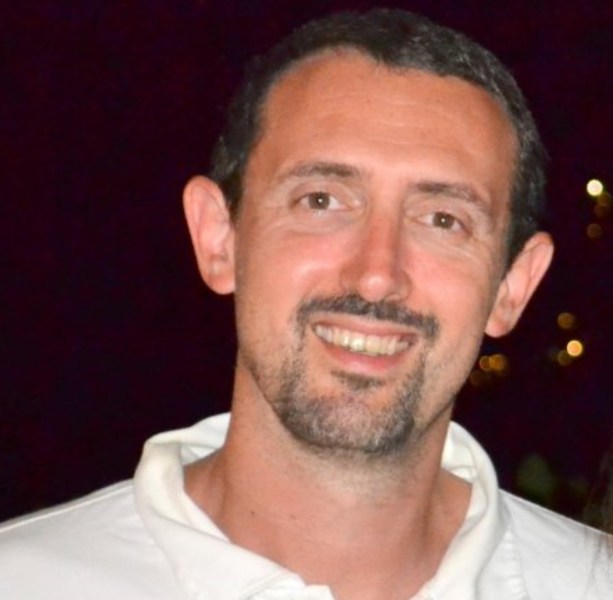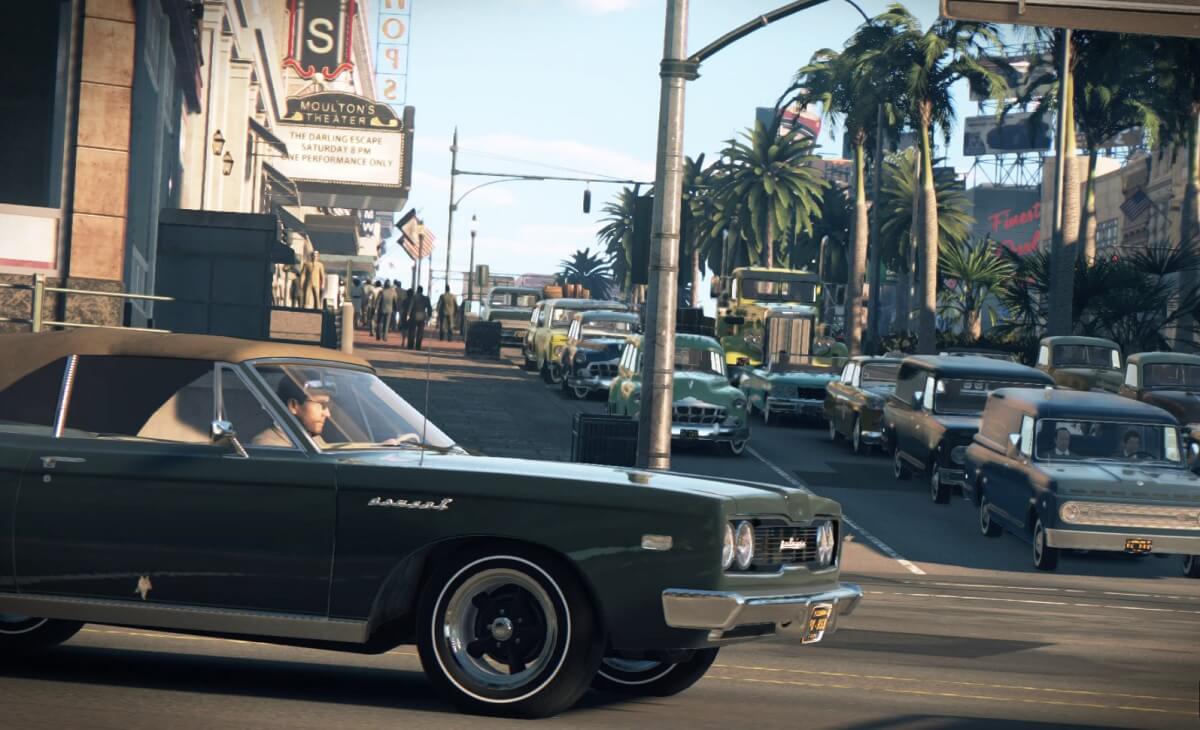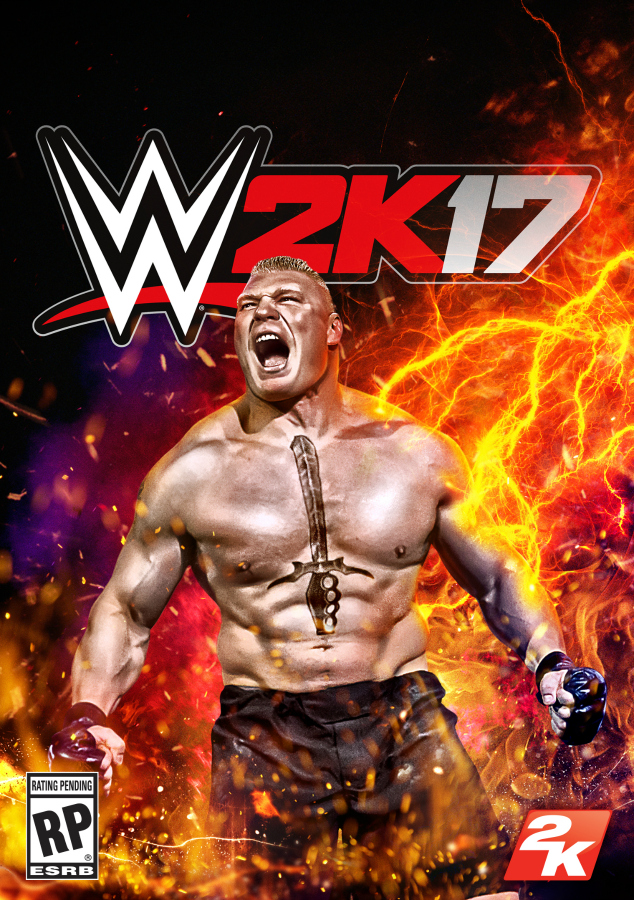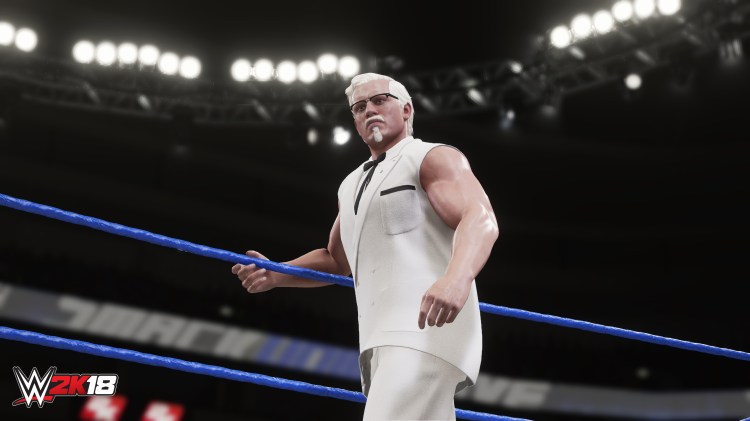Take-Two Interactive is famous for its Rockstar Games label, which essentially runs as an independent company making games such as Grand Theft Auto and Red Dead Redemption. But it’s also got another big label in 2K Games, which is headed by David Ismailer.
Ismailer had been at 2K since 2002, and he became president last year. I caught up with him at the Electronic Entertainment Expo (E3), the big game industry trade show in Los Angeles this week. Ismailer said that the NBA 2K and WWE franchises are up year over year, and they’re getting a boost through the renewed interest in esports.
Ismailer said the growth is bearing financial fruits for Take-Two, and it is resulting in greater autonomy and creativity when it comes to expansion. The company’s Hangar 13 studio (maker of Mafia III) is expanding by opening a new office in Brighton, England. And 2K’s Firaxis strategy games studio and mobile gaming are also growing.
Here’s an edited transcript of our interview.

Above: David Ismailer is head of 2K Games.
GamesBeat: What’s your update on 2K?
David Ismailer: Right now our focus is portfolio growth. We’re looking to expand the portfolio of products we offer with additional offerings, quality products that hopefully consumers are going to love and play, and also partnerships. We have some long-term partnerships and we’re looking add to those. We’re also looking to expand our resources. We have more ideas than we have development resources, which is part of trying to grow. We’re going to go expand our talent, and also, as you saw with our expansion to Brighton, focus on doing development wherever there are resources.
And then last, I would say as we get consumers into our games, it’s important for us to provide additional engagement and content for them afterward. The analogy I use is, sometimes I think of games like an amusement park. There’s a series of rides inside the park. The more rides the park has, the more people are inside the park. Occasionally they do a nighttime event and I stay late instead of leaving early. And then once in a while they bring out a new ride and I go back when that’s available.
I think of games in the same way. We have to continuously provide that kind of content to the consumer once they get into our brand. It’s really important for us that we deliver on the quality experience first, and then the quality experience with everything we release afterward. Those are our current priorities.
We have NBA doing extremely well, 9 million units. We’re up 17 percent year-over-year based on the last numbers we announced. We have WWE, which we’re investing in more to hopefully improve the quality of that product over the coming years. We have our strategy business with Firaxis. We’re hoping to add to that as well. We have a really strong portfolio of triple-A studios making more content as we speak. And we have a focus on growing our mobile offerings and our China business. We feel excited and bullish on the upcoming opportunities.
GamesBeat: There’s an esports angle to NBA, right?
Ismailer: In fact, there’s a meeting across the way on esports. It’s going well. I think we’re excited about it. We’re invested in this for the long term with our partners in the NBA. We’re investing in trying to make sure we improve the offering that consumers are watching. We’re excited about next year’s esports tournament as well.

Above: The well-inked Damian Lillard in NBA2K.
GamesBeat: It looks like expansion on every front.
Ismailer: And growth. We have the benefit of the Take-Two structure where 2K is somewhat of an autonomous business. Things that are relevant at our size might not be relevant to Take-Two, but they’re still important to us. At the same time, we get to incubate and provide creative freedoms to development teams that work within our structure while also giving them access to resources that are at the Take-Two level, which includes distribution across the world that publishes games like NBA, GTA, and Red Dead. That structure gives freedom to the studios, but at the same time, gives us the capital and the infrastructure to really push out products.
GamesBeat: I thought it was interesting that a studio like Hangar 13 would have several places within the same studio now. It changes the idea of what a studio is.
Ismailer: With the increasing difficulty of building large teams in one location—resources are really tight. There is a continuing expansion of all our studios, not just Hangar 13, in different locations. At this point, we need to learn how to work in distributed teams, because we cannot acquire all those resources in one location. Some teams have three teams in the United States. Some teams have five teams all over the world. We need to work in that fashion, because if we continue to just try to grow in one location, we can’t execute on all our ideas.
GamesBeat: When you’re finding brand new developers and places where you want to grow offices, are you noticing a pattern there as far as where you find that, as far as locations?
Ismailer: We haven’t specifically noticed one particular pattern. Different skill teams are in different locations. Sometimes we’ll find a team that is self-publishing, on their own, a particular product, but we can add them to our existing franchise and they can execute on live operations for us. Other times we find a team that’s really technically capable working on the back end network for their own product that’s really small, and we pick up that team. We haven’t found one pocket where we just focus on that one area.
GamesBeat: As far as the spread across different platforms, are you doing a lot more mobile?
Ismailer: Most of the expertise we’re currently looking for is console. We have a series of mobile projects, but typically those we’ll drop into one whole studio, and that studio will do the entire mobile game, as opposed to doing mobile distributed development. We haven’t started with that yet.
GamesBeat: One thing I think I notice about E3—this has been gradual, but you’d announce a game here, and six months later it would come out. You get all that attention here, but then no way to execute on that immediate interest. Now all these people are starting to drop games now. The esports things are happening here too. They’re capitalizing on the attention in some way.
Ismailer: The lifespan of the marketing cycle is getting shorter. I would argue that before, you would announce a game at E3 and then ship it one E3 later. The life cycle was really long, 12 to 18 months. You’d end up slipping. Some of those were specific cases. I do think it’s unique that people are dropping mobile games the day of E3, or dropping an expansion pack.
GamesBeat: Fallout Shelter was the big one.
Ismailer: Two years ago, yeah, the shock. That was brilliant execution. I think people learned from that. That year they announced Fallout and shipped it four months later. I think that’s become no different than Apple announcing a phone and dropping it the same day. That pattern has spread throughout the publishers. By the way, it’s incredibly efficient marketing. You’re getting so much more bang for the dollar when your marketing cycle is shorter, compared to 10 months.
GamesBeat: Does E3 otherwise feel different in some way?
Ismailer: I’m really excited by the content some people are showing. Someone asked me the other day what my two favorite things are. I really love the Gears Pop thing. I love the fact that someone is taking a risk on developing something that’s really different from the core experience they had. It has humor to it. If you look at entertainment today, Marvel movies all have humor in them. That was really cool.
I’m excited about Cyberpunk. That’s my kind of game. But I think there’s a lot of really innovative stuff I’ve seen at E3. It’s exciting for the industry. The more risks people take and the more they are successful with that risk, the more it will encourage people to take risks.

Above: I found myself driving around just to listen to music in Mafia III.
GamesBeat: I know Take-Two tried a lot with the premium model in mobile. That didn’t work as well. There was a time there when it was impossible to crack the top five, too, in all mobile. Game of War and Clash of Clans were there. But now those guys have been shaken loose. Fortnite has gotten up there. It seems like there’s an opportunity in mobile to crack into the very top. There’s also more appetite for hardcore games on mobile. Fallout Shelter also made me think—had they had a live game that went on forever, they could have financed all the other things they wanted to do with the one mobile game.
Ismailer: Mobile is certainly funding certain projects. I don’t know about if it’s any easier now to crack the top 10. I do know that premium games are part of our portfolio, but they do not make a significant difference in the opportunity, because of the distribution. I think free-to-play is the place where we’re focusing the most, because it gets the broadest distribution.

Above: Borderlands 3 wasn’t at E3 this year.
GamesBeat: Do you think battle royale will go into anything you guys are doing?
Ismailer: We consider every single new opportunity we can in terms of new gameplay, especially when it’s something that 100 million people are playing. Whether we chase that opportunity–I think there’s a market leader, and it’s hard to chase trends. I don’t think there’s anything necessarily right now that we’re prepared to talk about.
GamesBeat: Things like that, when they happen, and when the mobile rankings shake up like they have, that also makes me more interested in the opportunities, the things that are possible. It seems more like the problem right now is where to focus.
Ismailer: Definitely, yes. That problem, where to focus, is because we can’t do everything. We’re back to my limited development resources. It’s quite difficult, without huge scale, to execute against all the opportunities and ideas that you have.
GamesBeat: Microsoft’s announcement of acquiring or building five new studios seemed like it was meant to inspire people along those lines. Showing confidence in the platform.
Ismailer: Absolutely. In some ways, the industry has attributed Sony’s success to its first-party portfolio, exclusive portfolio. I think Microsoft has done the same thing.
GamesBeat: For you guys, has that worked? They want to make an impression on the industry, that we should be confident in Microsoft?
Ismailer: I’d say yes, that has worked. We’ve always been huge supporters of Microsoft. Some of our games, early in the generations, have been very successful on their platform. We’re huge partners of theirs. I’m happy to see them doing the acquisitions they did.
One thing we’re seeing in the industry is large changes, whether it’s distribution platforms or the way we charge consumers. I think over the past year–we’ve brought Melissa Bell on board, who comes to us from Infiniti Motors. We brought Phil Dixon on board, who comes to us from one of the largest gambling companies in Europe. As these changes happen in the industry, it’s important for us to take on those challenges and decisions we have to make with some outside expertise. Other industries have weathered massive changes in the marketplace, and I think the video game industry is heading exactly into that right now.

Above: The Beast is the cover star.
GamesBeat: I wonder what you think about EA and the single-player focus that they’re getting away from. To me it seems like single-player–if you do the narrative right, like you did in Mafia III, you get this really high engagement from the player. That motivates me to do some kind of multiplayer gameplay, which gets people coming back, and eventually gets them spending more. But the open world single-player experiences can feel like they’re not motivating in the same way. I might get some more loot out of doing a mission. There seems to be a problem there, in that if everyone abandons single-player and goes for the loot reward system–
Ismailer: Everything’s just going to be the same.
GamesBeat: Call of Duty this year, I’m less excited because they say they’re not going to have a single-player campaign.
Ismailer: I think it’s an incredible dynamic that’s happening in the industry. There’s a conflict in some way between the economics of a game and the content that you offer. We evaluate that for each game independently, to try to make the right decision. We’re certainly still believers in single-player content as part of our games. Some people just want to play alone and other people want to play as part of a multiplayer experience. I don’t think shifting the entire portfolio in either direction is the right decision for us.

